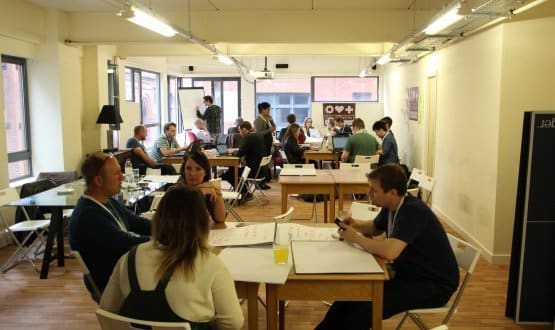Infusion pump tool wins NHS Hack Day
- 18 September 2015

A tool to eliminate errors in the programming of infusion pumps was the winning project at this month’s NHS Hack Day in Manchester.
A panel of five expert judges picked out the project from several developed by different groups at the weekend event, which brings together clinicians, software engineers and other people with an interest in healthcare IT to create innovative tech solutions for healthcare problems.
The QuickfusoR tool is the idea of Adrian Wilkins, a software engineer with an interest in healthcare who has been a follower of NHS Hack Day since its early days.
It uses a QR code to help clinicians set the infusion rate of medicines delivered by a pump, in order to eliminate errors which can lead to serious safety issues. A prototype built in two days used less than £90 of hardware.
It works by using preprogramed infusion packages for certain medicines and conditions. These packages are then attached to a QR code, which the clinician can simply scan to programme the information into the infusion pump.
In this case, the tool didn’t transfer the information to a workable infusion pump, as they tend to be closed source devices, but instead to an application in a Raspberry Pi computer that in theory could have worked a pump.
In a comment to Digital Health News, Wilkins said the idea for QuickfusoR was inspired by a lecture by Professor Harold Thimbleby on the role technology can play in patient safety issues, such as drug errors.
“The reason it could benefit the NHS becomes obvious once you watch the lecture; the existing path of communication between prescription and infusion pump has many opportunities for errors,” he said.
Marcus Baw, the GP who organised the Manchester event, said he hoped that by winning the event other organisations would be inspired to invest in QuickfusoR.
“Somebody from an innovation area of the NHS should say ‘we need to develop this’, as it has potential to save lives and reduce errors in an area where drug errors are extremely common.”
He added: “This kind of thing puts NHS innovation teams to shame to a degree. They can often see innovation right in front of themselves in the shape of something like [QuickfusoR], but no attempt is made to reach out and give it support at stage where it’s so fragile and in need of support.”
Wilkins said that any concrete plan to take the project further “remains to be seen” although there are possibilities for its further development.
These include turning the idea into a certified medical device, although this would require financial backing.
“I don't know the costs involved with medical device certification, but I imagine they are not small. So there must be a perceived demand to develop a new product,” said Wilkins, who mentioned the tool would probably provide most benefit in areas where dosing rate is critical, such as chemotherapy.
There’s also the possibility that a device could be created that “piggy backs” on existing hardware, although Wilkins said he does not favour this approach as it “brings back that problem of potential miscommunication – but between two pieces of hardware rather than between a person and a pump.”
Other projects to be recognised at the NHS Hack Day included Supervised Learning Opportunities by Text, or SLOT, which aims to match medical students with opportunities for hands-on learning in hospitals.
Third place was shared between Prescribing OnTheGo; a mobile app that can produce an NHS prescription using a phone, and Let’s Talk; a tool to support meaningful communication between patient and healthcare professional.
The next NHS Hack Day will be in Cardiff in January 2016.




